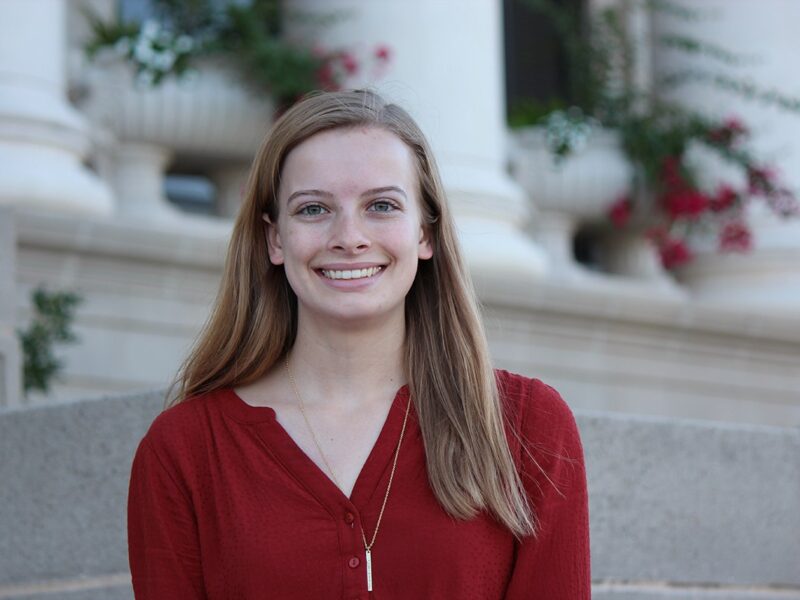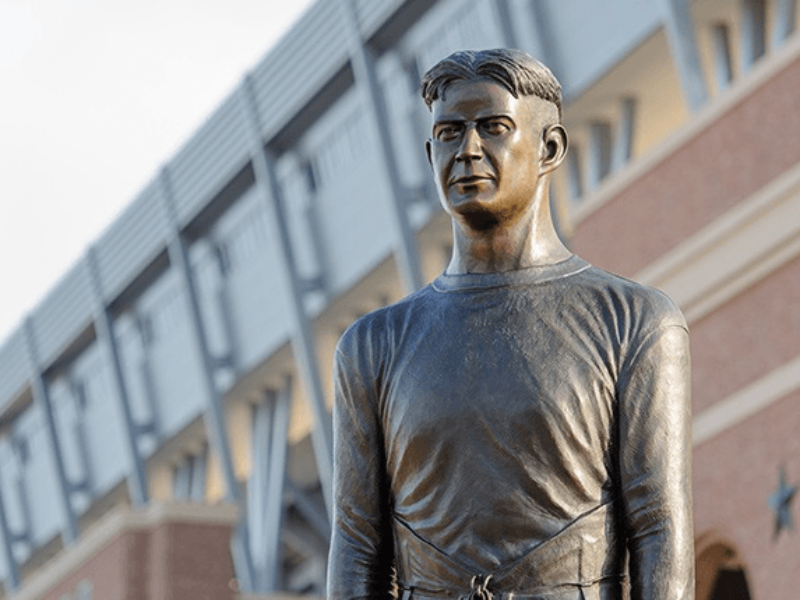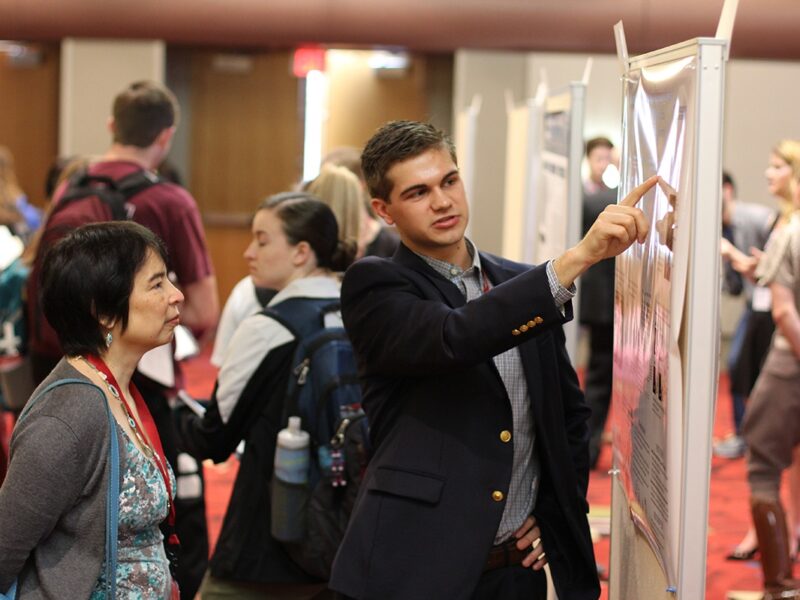Students Are Hungry For ‘First Year Eats’
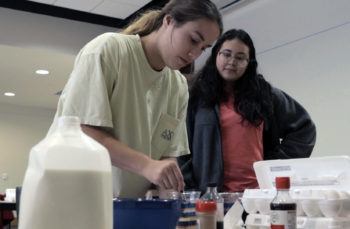
Alex Peters ’21 thought he was like every other young person in college — hungry to learn, hungry for adventure and hungry to embark on a major life milestone. Then he realized that some of his peers were just plain hungry.
Peters, a junior statistics major at Texas A&M University, has been collaborating since August with a new campus program, First Year Eats, as part of a yearlong research project to determine how adequate food intake can affect academic retention and GPA in freshmen.
Established in 2019 by LAUNCH, a unit of Undergraduate Studies in the Division of Academic Affairs that seeks to provide high-impact educational experiences for Aggies, First Year Eats is a learning community that collaboratively addresses freshman year hunger and food insecurity by providing students with budgeting tips and community-centered food preparation classes and opportunities. Peters’ role in the project will be to compare the academic success rates of students involved in First Year Eats with those in a control group, and to conduct related analyses.
“We already know that learning communities work; we have data that suggests that,” Peters said. “We want to know if this will make a difference relative to other learning communities. Do these students do better on average than students in other learning communities that are not food focused? I hope to show in the end that they do.”
Food insecurity, which is defined by the U.S. Department of Agriculture (USDA) as a lack of consistent access to enough nutrition for a healthy lifestyle, affects students at college campuses across the country, and can hinder their ability to learn.
Sumana Datta, assistant provost for Undergraduate Studies and executive director for LAUNCH, serves as project leader for the First Year Eats program. Datta said that surveys given to Aggie freshmen in 2018 during their first semester of college indicate roughly 25 percent of them worry they will need to skip meals because they don’t have enough money to eat.
To help address some of these issues, First Year Eats offers its students several resources. Throughout the year, workshops like Mug Meals Monday, in which students can learn how to make simple microwaveable meals in a coffee mug, teach students different food preparation techniques. In addition, there are frequent seminars to educate students about shopping tips and maintaining a healthy diet on a budget.
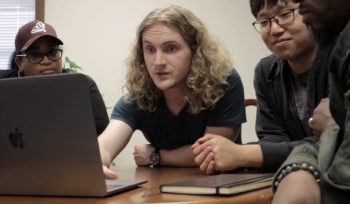
“Being hungry affects your grades, it affects your concentration [and] it affects your energy,” Datta said. “We thought by teaching students how to cook and providing some of the resources that we could help students develop the lifelong skills that they’ll need, as well as help them eat and be able to be better students while they’re here.”
First Year Eats students have access to a free food pantry that offers grab-and-go snacks and ingredients to prepare the workshop meals
“Even though, in the end, we want to show that having food makes a difference, it would also be nice to show what kinds of food makes a difference,” Peters said.
First Year Eats is funded by the Texas A&M Innovation [X] Program, which provides grants that allow multidisciplinary teams of faculty, undergraduates, graduate students and postdocs to work together to address complex real-world challenges, and is sponsored by H-E-B and Integ. Because it’s still in the pilot phase, First Year Eats currently is only being offered to students in the Clements Hall dormitory.
“The dream is that if we can show that this program really is making a significant difference in students’ ability to be successful at Texas A&M, then the idea is to make it available to other communities of students facing the same challenges,” Datta said.
As for Peters, he looks forward to continuing his work with First Year Eats and seeing firsthand how students are affected by sufficient access to food. Peters notes that he has always been devoted to using his knowledge and expertise in ways that benefit others. A native of Forney, Texas and an avid music enthusiast, Peters taught guitar lessons throughout his high school years. These days, he offers statistics tutoring to classmates.
In the future, Peters would like to make a career of using his statistics education to help improve standards of living, particularly in the areas of clean energy and green technology.
“One of the things that I really like about statistics, and one of the reasons I chose statistics, is it’s incredibly interdisciplinary,” he said. “I never really have to pick a fixed industry to work in. I can do a lot of different things with statistics because any field with data is going to use statistics.”
This story by Chris Jarvis originally appeared on the College of Science website.
Media contacts:
- Chris Jarvis, 979- 845-7246, cjarvis@science.tamu.edu.
- Sumana Datta, 979-845-1957,sumad@tamu.edu.
